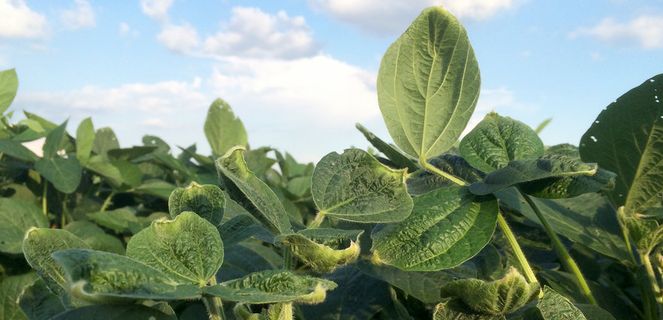Officials seek ways to make dicamba available in 2019
by March 20, 2018 11:30 am 695 views

Controversy has raged within the Arkansas farming community for years about the use of the herbicide, dicamba, and its impacts. The Arkansas State Plant Board allowed one formulation, Engenia dicamba, to be used during the 2017 growing season.
But after the board received numerous damage-related complaints from the herbicide drifting onto non-dicamba row crop fields, gardens, and other vegetation, the board banned dicamba in July 2017, and later opted to ban it in 2018.
The Arkansas General Assembly affirmed the regulatory ban in January after months of debate and numerous meetings by lawmakers. Rep. Joe Jett, R-Success, told Talk Business & Politics dicamba has proven to be a volatile product, but necessary for farmers especially in the Mississippi Delta Region. The issue is complicated, but Jett thinks policy makers will come to a conclusion that will allow at least limited dicamba use in the state during the 2019 growing season.
“It’s not a cure or fix all. It will help our farmers survive,” Jett said.
Arkansas will have three or four tests plots statewide in 2018 to study the drift issue, Jett said. Wind and temperature stations, similar to ones used in Oklahoma, will be studied to determine if wind and temperature inversions can be forecast.
For example, a Craighead County station might collect data that a wind change or temperature fluctuations are about to occur in Mississippi County as the wind stream moves from west to east. Farmers would know that spraying dicamba would be problematic, and they could wait until another time, Jett said.
“It could be a situation where we provide our farmers with real-time data to make the best decisions,” Jett said.
Dicamba kills nuisance weeds, such as pig weed, that are prevalent in row crops in the Delta, especially soybeans and cotton. Arkansas farmers last year planted 3.5 million soybean acres in Arkansas, primarily in the Delta, and 438,000 cotton acres. Studies have shown that dicamba products can be volatile when temperatures rise, especially with older formulations.
When the temperatures rose in May, the complaints began, according to ASPB. The complaints primarily centered in Northeast Arkansas, especially in Mississippi County, the highest soybean producing county in the state. By the end of the growing season, ASPB had received almost 1,000 complaints.
Manila farmer David Wildy told lawmakers before a decision was rendered on the 2018 season he lost about $350,000 when dicamba drifted onto his fields. Two neighbors admitted dicamba drifted from their fields, but their insurance companies refused to pay any compensation, he said.
“This issue is the worst issue I’ve seen in my 43 years of farming,” he said. “Who is going to stand good for my losses?”
On the other side, hundreds of farmers representing 1.4 million agriculture acres, sent a petition to ASPB to reconsider the ban. Two lawsuits have been filed against ASPB in an effort to compel the agency to relax the rule. A group of farmers has filed one of the suits, while the other was filed by Monsanto, the company that sells dicamba in Arkansas.
It’s likely some farmers mixed older formulations of dicamba into the newer formulation, but it would be difficult to prove, according to ASPB.
The newer formulations seem to activate at higher temperatures, meaning the ban date could be changed next year, Jett said. Many soybean farmers plant their crops and apply the first herbicide application in May. If the date could be moved, it might give farmers at least one chance to use dicamba. The first application is the most critical, he said.
Dicamba has been banned in several states. Dicamba has been used as an herbicide for more than 50 years to manage 200 broad leaf weeds. It is a Weed Science Society of America Group 4 synthetic auxin – a plant hormone that causes plants to exhibit uncontrolled growth, according to the University of Arkansas. It is more volatile in warmer climates.
